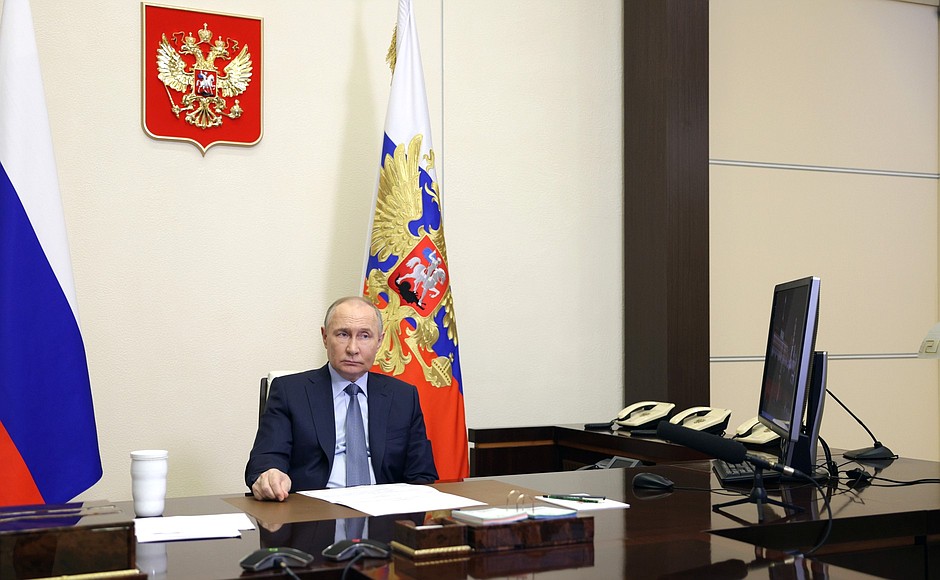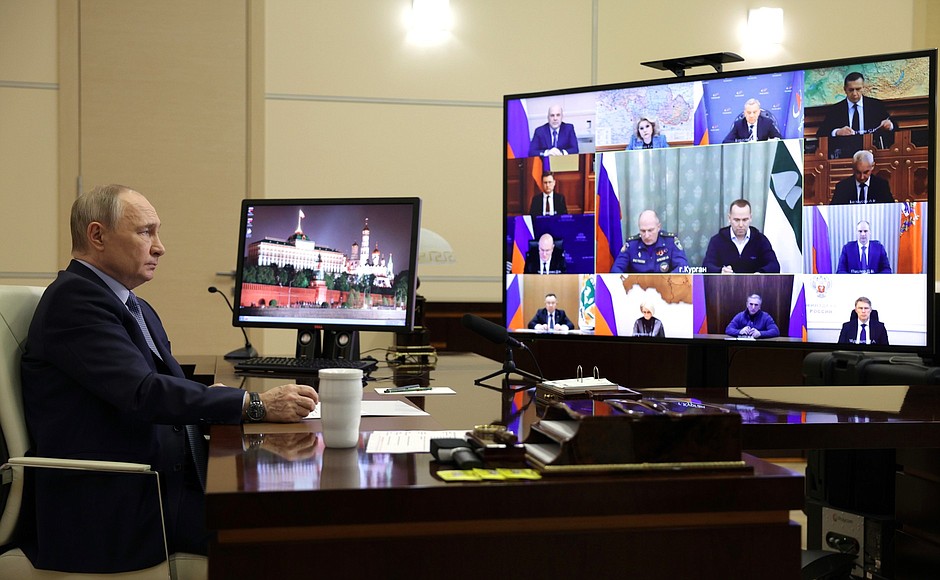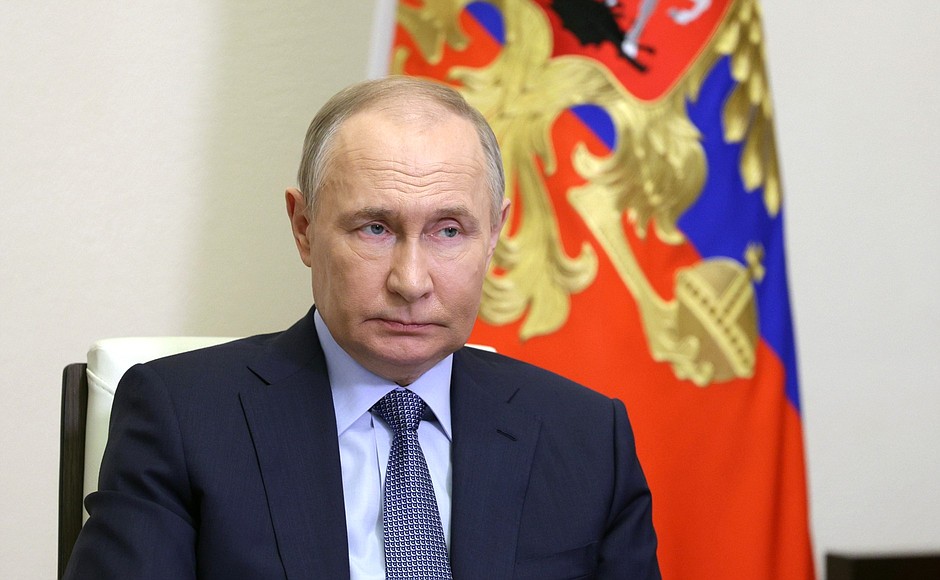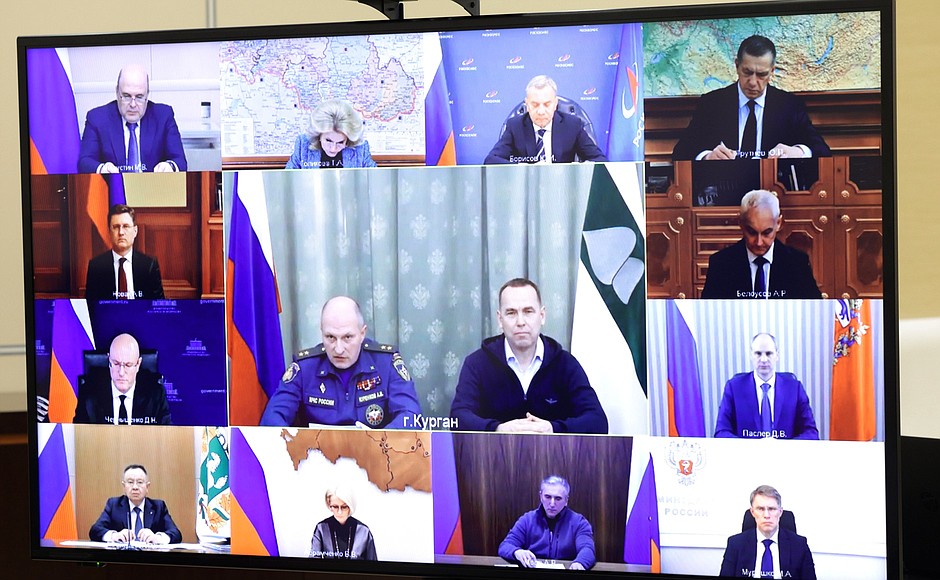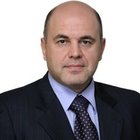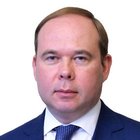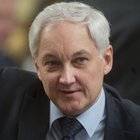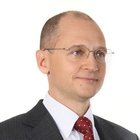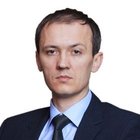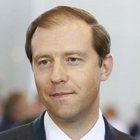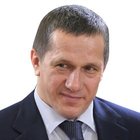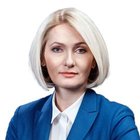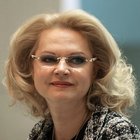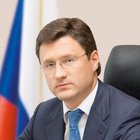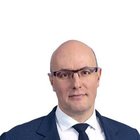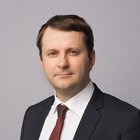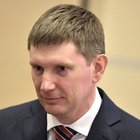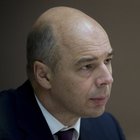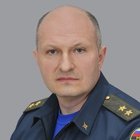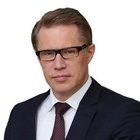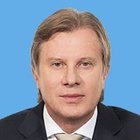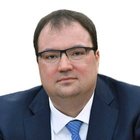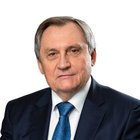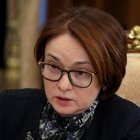The meeting focused on the use of Russian-made software in the economy, but first its participants discussed several current issues, in particular, the flood situation in the Russian regions.
The meeting was also attended by Prime Minister Mikhail Mishustin, Chief of Staff of the Presidential Executive Office Anton Vaino, First Deputy Prime Minister Andrei Belousov, Deputy Chief of Staff of the Presidential Executive Office Sergei Kiriyenko, Deputy Prime Minister – Chief of the Government Staff Dmitry Grigorenko, Deputy Prime Minister – Minister of Industry and Trade Denis Manturov, Deputy Prime Minister – Presidential Plenipotentiary Envoy to the Far Eastern Federal District Yury Trutnev, Deputy Prime Ministers Viktoria Abramchenko, Tatyana Golikova, Alexander Novak and Dmitry Chernyshenko, Presidential Aide Maxim Oreshkin, Minister of Economic Development Maxim Reshetnikov, and Minister of Finance Anton Siluanov.
Minister of Civil Defence, Emergencies and Disaster Relief Alexander Kurenkov, Healthcare Minister Mikhail Murashko, Transport Minister Vitaly Savelyev, Minister of Construction, Housing and Utilities Irek Faizullin, Minister of Digital Development, Communications and Mass Media Maksut Shadayev, Energy Minister Nikolai Shulginov, Central Bank Governor Elvira Nabiullina, the governors of the Kurgan, Orenburg and Tyumen regions, as well as the heads of the Federal Service for Technical and Export Control and the Roscosmos State Corporation had also been invited to attend.
* * *
President of Russia Vladimir Putin: Let us begin with the floods. Mr Kurenkov will be the first to speak. You briefed me yesterday. In fact, we talk nearly every day. Please, update us on the current situation.
(Emergencies Minister Alexander Kurenkov reported about the situation related to spring floods in the Orenburg, Kurgan and Tyumen regions. He described how the Emergencies Ministry is cooperating with the regional authorities on providing assistance to the affected population, carrying out preventive measures to protect residential areas, and eliminate the aftermath of the emergency in the areas where the water has already receded.
Minister of Construction, Housing and Utilities Irek Faizullin spoke about the current inspection of houses to determine whether they may be restored or should be considered lost, including real estate properties of the dacha communities.
The President noted the need to promptly organise work on assessing the damage. There should be no delays in it. As soon as the water recedes, relevant commissions must star working in cooperation with specialists from the Ministry of Construction, Housing and Utilities.
Further, detailed reports were made by Kurgan Region Governor Vadim Shumkov, Orenburg Region Governor Denis Pasler and Tyumen Region Governor Alexander Moor.)
Vladimir Putin: I would like to thank all the colleagues from the regions. I see how hard you are working and hope that you will be doing this until all issues related to the restoration of the infrastructure and housing are resolved. We will certainly return to this. Obviously, we must keep this under control. Mr Kurenkov reports to me practically every day. But a little later, when the water recedes, we will hold an expanded meeting and discuss with the heads of municipalities the restoration of the infrastructure and housing. There are some sensitive issues in this respect and we will definitely return to them.
Mr Murashko, our colleagues recalled the work of supervisory bodies and medical services. How do you assess the situation with floods from the medical viewpoint?
(Health Minister Mikhail Murashko reported to the President that all medical measures are carried out on time. Thus, 21 facilities have been evacuated from 11 medical organisations of the healthcare system in the Orenburg Region and 41 vaccination teams are working there. The required work has been organised in the Kurgan Region. The hotline on psychological first aid is working round the clock. Experts are assessing the damage done to the medical institutions.)
Vladimir Putin: You have enough specialists there, don’t you? So I got you right.
Mikhail Murashko: Yes, we have enough specialists.
Vladimir Putin: All right. You have enough specialists there and this is excellent, thank goodness. However, there are not enough of them in the system as a whole. I know that the number of students in colleges and medical universities grew by about 20 percent in the past five years. What is the overall situation with the training of personnel?
Mikhail Murashko: Mr President, training medical specialists is the most effective tool that we use to replenish our human resources. We can see a positive balance in the medical doctor supply system for 2023 with a surplus of 10,000 trained professionals. This is a very good result.
Over the past five years, the admission targets for publicly funded training at higher education institutions have been increased by 21.5 percent, which translates into over 34,000 spots available in 2024. We are allocating these spots primarily to the universities that train specialists for the regions facing the most serious staffing challenges.
We have also increased the number of spots in residency training programmes by 19 percent to 19,700 spots. We are using an effective mechanism in the form of targeted admission where targeted admission accounts for 76 percent of all publicly funded spots. In residency training, which covers 54 most popular specialties, targeted admissions cover 100 percent of the publicly funded spots.
We are doing much in terms of career counselling at schools, including pre-university and medical classes. Importantly, students who take pre-university and specialised classes do better in class and, accordingly, their motivation to receive medical training is much stronger as well.
Speaking of training specialists, we have amended the law accordingly upon your instruction. The order of the Ministry of Healthcare on admitting second-year residency students to working at medical institutions as doctors under the supervision of experienced medical professionals specialising in their respective areas of studies came into force on April 1. This is a hands-on approach that is broadly implemented in the healthcare system.
There is one more critical area. We mentioned earlier that a large number of sophisticated medical equipment is in operation today, and medical products, both implantable and active, are under development. Advanced engineering schools have been created and are operational at the medical universities that report to the Ministry of Healthcare. We use these schools to train specialists who can work effectively in this area.
Medical volunteering has an important role to play. Today, there are over 280 volunteer groups operating at universities and colleges. Over the past five years, volunteers have held over 44,000 preventive and educational events, including under the Goodness to the Village initiative. The volunteer programmes covered over 36 million people in all.
We also have special focus on remote education. It must be noted that it was the website for continuous medical education that was of real help during the pandemic. Information was received via it instantaneously. Over two million specialists completed educational courses almost simultaneously. Today we also use this in our daily practice.
I would like to note that mid-level’s role today is difficult to underestimate; it is a colossal resource. Almost 140,000 first-year students are studying in 410 educational institutions in our healthcare system, of which almost 70 percent are publicly funded spots. I must note that the demand and desire to enroll in medical colleges has been enormous in recent years. In most of them, the admission score is over 4.5 on a five-point system.
We can see that this is highly popular. Now, working with rectors of medical universities, we have decided to assign the supervision of medical colleges to rectors of higher educational institutions, including to introduce cutting-edge practices in training specialists.
And, of course, the scientific area has been given a great boost with the introduction of the state programmes, such as Priority 2030 and Professionalitet. All of this has significantly strengthened universities.
I would like to add that the recognition of changes in medical education has resulted in an increase in foreign students in medical schools. Today, there are more than 75,000 students from almost 150 countries receiving education in Russia. We can see that interest is growing. Almost every week we receive various requests. We have to adapt; different countries have their own specifical training and legal processing of documents, so we need to be more flexible and, of course, stick to our goals, since the demand is really high.
Our medical bases, where practical training takes place, can provide the highest level of training in all advanced technologies used in medicine today. Therefore, all instructions given in this area are being carried out. We can see that developing medical education must remain a priority in our work.
Thank you.
Vladimir Putin: Good. Thank you very much.
We have spoken now about the restoration of housing and the infrastructure in the affected regions but in general the work on developing infrastructure continues and it is many-faceted. One of the new areas is the expansion of social gas distribution networks. Mr Novak, what is happening in this area?
(Deputy Prime Minister Alexander Novak described the work organised by the Government together with the regions, Gazprom and regional gas supplies operators for fulfilling the President's instruction to extend social gas distribution to the garden communities located within the city and village limits already connected to gas. He noted that Gazprom has mobilised for this work over 600 contractors, about 30,000 people and more than 4,000 units of equipment. This year, it has also allocated an unprecedented 270 billion rubles for this social gas distribution. Alexander Novak also cited several figures on the programme of social gas supplies that has been carried out on the President’s instruction for the past two years. As of today, people have submitted 1,650,000 applications and signed 1,299,000 contracts. He said that about 1.2 million households have received this technical opportunity. Gas has already been connected to 554,000 households. Mr Novak also reported about social support measures for laying gas pipelines inside land plots and purchasing gas equipment. In three years, the regions allocated about 12.5 billion rubles for this purpose and about 30 categories of people are covered by support measures.)
Vladimir Putin: Well done. Thank you very much.
I think we will do everything on time and with proper quality.
Mr Borisov, tell us, please about Angara again and about the prospects.
General Director of the Roscosmos State Corporation for Space Activities Yury Borisov: Colleagues, Mr President,
On April 9, we started flight tests of the Angara-A5 heavy launch vehicle at the newly built launch complex at the Vostochny Cosmodrome. These tests are designed to remove all mishaps that inevitably arise at the first launch and check all the necessary operating parameters.
As you know, twice – on April 11 and 12, the automatic equipment interrupted the launch procedure, and the crew, together with engineers and designers, had to find the malfunction. The crew did a very good job. It deserves all praise for its precise, calm and competent efforts.
At noon Moscow time on April 11, the rocket took off and accomplished all mission assignments, as did the Orion booster created by Energiya Rocket and Space Corporation (RSC) to launch spacecraft into various target orbits, all the way to the geostationary orbit at an altitude of 36,000 kilometres above the Earth.
This was the fourth Angara launch in 10 years. Three rockets before that were launched from Plesetsk. This has been the first launch from the Vostochny Cosmodrome.
Notably, the rocket is just beginning to gain potential, but it is already clear that its prospects are good. We pin great hopes on Angara at the Vostochny Cosmodrome. It has a number of indisputable advantages over the heavy Proton-M launch vehicle and will eventually replace it.
First, we are no longer dependent on geopolitical circumstances now that we can launch heavy rockets from our territory using two launch pads, one in Plesetsk and one in Vostochny, at a time whereas the Proton-M launch complex is located at Baikonur, Kazakhstan.
Second, unlike Proton-M that runs on heptyl, the Angara-A5 engine uses much more environmentally friendly kerosene.
Third, Angara boasts a larger payload capacity and a significant potential for expansion. Today, the Angara rocket family that was developed and produced by the Khrunichev Centre comes in two varieties.
The lightweight Angara – Angara-1.2 is a two-stage rocket based on an all-purpose rocket module. It is used to launch at least 3.5 tonnes into a low circular orbit, that is 200 kilometres, and at least 2.4 tonnes into the sun-synchronous orbit, that is 835 kilometres.
Angara-A5 is a three-stage heavy-lift launch vehicle with its modules largely standardised with Angara-1.2 modules. The Proton rocket launched from Baikonur can carry about 23 tonnes into low orbit, whereas the heavy Angara in its current configuration launched from Vostochny can carry at least 24.5 tonnes.
An upgraded Angara-A5M with a more powerful RD-191M thruster engine is being designed on order from Roscosmos State Corporation. By the way, we have recently completed firing tests and confirmed all stated specifications of this engine. It has an increased thrust of 10 percent, an upgraded control system, navigation equipment, and an on-board video monitoring system. It also uses the latest solutions to bring down the rocket’s weight which will help increase the weight of the payload to 27 tonnes.
The upgraded Angara will come with an option to launch manned spacecraft. It should become the main means for launching a new-generation manned transport vehicle and the Russian orbital station modules currently under construction into target orbits. The maiden launch of this rocket will take place in 2027 concomitantly with the comprehensive tests of the new spacecraft in its unmanned version and come as part of another Angara launch from Vostochny.
Angara-A5B outfitted with an oxygen-hydrogen third stage that can take a payload of up to 38 tonnes into low Earth orbit is another promising variation of this rocket. In the future, this space launch vehicle will be used to send automatic interplanetary stations and vehicles to explore the solar system and deep space. Provided that this project continues to be adequately financed, flight tests of this launch vehicle are to take place in 2030.
I will discuss the lightweight Angara separately. Considering the global trend to create constellations of small spacecraft and the growing demand for light-class rockets, Roscosmos has planned and included steps to fine tune the complex for launching Angara-1.2 rockets from the Vostochny Cosmodrome into the draft 2026–2028 Federal Space Programme.
Notably, these activities also include efforts to further expand the Vostochny Cosmodrome infrastructure, including the construction of a new assembly and testing facility and building the infrastructure for supplying and using hydrogen as a rocket fuel component, as well as the infrastructure for implementing manned programmes.
Thank you.
Vladimir Putin: Mr Borisov, do we need to build another pad for the super-heavy rocket?
Yury Borisov: Yes, Mr President. We will plan and build it at Vostochny. This is now our main cosmodrome, and it is being actively developed on your instructions. The builders are doing good work, not failing us. We are happy with their work. Even the paint remained almost untouched after the launch. We inspected the launch pad. It is in a very good condition, so we are truly grateful to the builders for their hard work.
Vladimir Putin: Thank you. I agree.
You need to deliver it and complete the paperwork. There is nothing to be afraid of. Everything is working, everything is fine. You need to draw up the paperwork. Let them not be afraid of anything, let them go ahead and do it, alright? Agreed?
Yury Borisov: Mr. President, I am on it. We are working on it in conjunction with the Prosecutor General’s Office and Deputy Prime Minister Marat Khusnullin.
Vladimir Putin: We need to see it through. Nothing seems to be a problem. All you need to do is get over with the enormous amount of paperwork. That is all there is to it. We must do it.
Yury Borisov: That is true, Mr President. Ninety-nine percent is in the completion status, but only 40 percent have been delivered.
Vladimir Putin: Right. Go ahead and finish it. I know what this is all about. There is nothing to be afraid of. All you need to do is complete the paperwork and be done with it. It is no longer 99 percent, it is 100 percent. Let them complete the paperwork, alright?
Now, about the domestic software in the economic sectors.
Please, Mr Shadayev.
<…>
